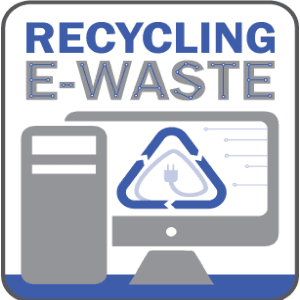Farmers are often misunderstood.
That’s a lesson local tech businessmen Mathew Sanford and Glen Watson have come to learn all too well in recent years. Although more than 2 million farms operate in the United States today, only 1.3% of Americans work in the agricultural sector, according to the US Department of Agriculture. That means for most Americans, farming has become a peripheral industry, seen foggily at best.
“Your average person probably doesn’t understand the complexities and the amount of tech that drives modern agriculture today,” Sanford said.
Many people, Sanford added, might even be surprised by the very existence of the company he and Watson co-founded. Agulus, a Greenville-based agriculture tech company, is a part of a broader wave of startups implementing digital technologies and solutions in the agricultural industry. While the American public might not be fully aware of the industry’s growth, investors have certainly taken notice, injecting more than $17 billion into agri-tech companies in 2018 alone, according to AgFunder.
“We were both in the position where we saw the potential,” Watson said.
Sanford agreed, noting that the line between agriculture and tech has always been blurred. From the invention of the steel plow through the development of pasteurization to modern refrigeration, the agriculture industry has historically been at the forefront of technological advancement.
“Farmers are not just farmers,” Sanford said. “They’re also agronomists, mechanics, marketers, chemists, accountants, engineers — basically, the ones I’ve met are all geniuses.”
Now Sanford and Watson are striving to serve that modern farmer with a digital marketplace that allows agricultural stakeholders — the brokers, buyers and sellers — to easily and quickly facilitate the purchase of goods or services.
Operating out of the NEXT Innovation Center, Agulus is also taking advantage of Greenville’s fertile entrepreneurial soil to grow a platform that can be scaled up and expanded to regions all across the world.
Start simple
The elevator pitch, so to speak, for the Agulus marketplace is easy enough to understand.
Let’s say a farmer wants to sell some corn. All they would need to do is create an account on the online marketplace for free and then search for buyers in that marketplace.
“That’s the core of this in a nutshell,” Watson said, “but it gets more complicated on our end.”
The complication, as is the case with many digital platforms, is how to simplify a vast set of options and inputs. The co-founders’ core focus for the time being is on the facilitation of crop sales and purchases, but the goal is to quickly expand the platform to accommodate the sale of cattle, poultry, dairy and other livestock, as well as a bevy of other transactions such as renting equipment, contracting an adviser, hiring a transporter and any other agriculture-related deals.
Geography is another consideration. While Agulus is focused primarily on serving farmers east of the Mississippi River to start, the company’s founders have designed the platform so that it can be used anywhere across the globe.
“There is a tremendous amount of growth happening outside the United Sates,” Watson said, “But that growth right now doesn’t have the backing of tech. Not yet.”
Christy Ashkettle, director of communications and culture at the NEXT Innovation Center, said Agulus’ innovative approach, combined with its scalability, is what made the company such a draw for the center in the first place.
“When we look at our population of entrepreneurs, we try to find ones that are genuinely involved in disrupting the industries, because that’s where innovation comes from,” Ashkettle said.
Ashkettle sees Agulus as a way to empower farmers, especially smaller operators who otherwise wouldn’t have the opportunities the marketplace provides. While large-scale farms can rely on their sheer dominance in the marketplace to facilitate transactions, the small to mid-level farms are often on their own. With Agulus, a whole new set of opportunities opens up to them.
“They are changing things up,” Ashkettle said. “The world is moving toward an online marketplace broadly speaking, and agri-tech is no exception.”
Such a statement — that things are moving online — seems obvious enough, Sanford and Watson admit. And while the Agulus platform itself is easy enough for even non-farmers to understand, it does call to mind a question both company co-founders are often asked: Why doesn’t this exist already?
“We get that question asked quite a lot,” Watson said.
Both said the answer to why an open, centralized, easy-to-use agricultural marketplace has yet to be developed has a lot to do with the insular nature of the agriculture industry itself — what Sanford call its “uniquely insular” culture.
“It’s difficult to just throw someone into the agriculture sector and expect them to create something of true value,” he said.
Tech meets agriculture
But that’s what gives Sanford and Watson an advantage: Both have straddled between the worlds of tech and agriculture their entire careers.
Watson worked for years in information technology, spending time as a geographic information systems specialist for the USDA Farm Service Agency in Columbia, South Carolina, and later worked as a lead project manager for the financial farm planning software company Croptell.
Sanford was the operations director of Palmetto Grain Brokerage in Ridgeland, South Carolina, where he was responsible for technical and operational matters regarding the trade of billions of dollars’ worth of agricultural commodities.
Their dual understanding of agriculture and tech gives them a unique ability to spot areas in the industry that are underserved, especially what they call the “disappearing middle” — the farms that are too big to sell all their crops locally through farmers markets and the like but are still too small to be taken seriously by brokers in the commodity markets.
With Augulus’ marketplace, which its co-founders expect to launch by the end of summer or early autumn of 2020, the goal is to expose and drive forward all the opportunities that do exist for those midlevel farms while still catering to larger farms.
“Farmers, especially those working the family farms and such, are already stretched pretty thin,” Watson said. “But every single person I’ve ever met in my life shares one thing in common: They all eat food. If we don’t have farmers, there is no civilization. People unfortunately just don’t know a lot about this world. We’re hoping that changes.”
The post Agribusiness 2.0: Agulus sees an online future for modern agriculture appeared first on UPSTATE BUSINESS JOURNAL.








